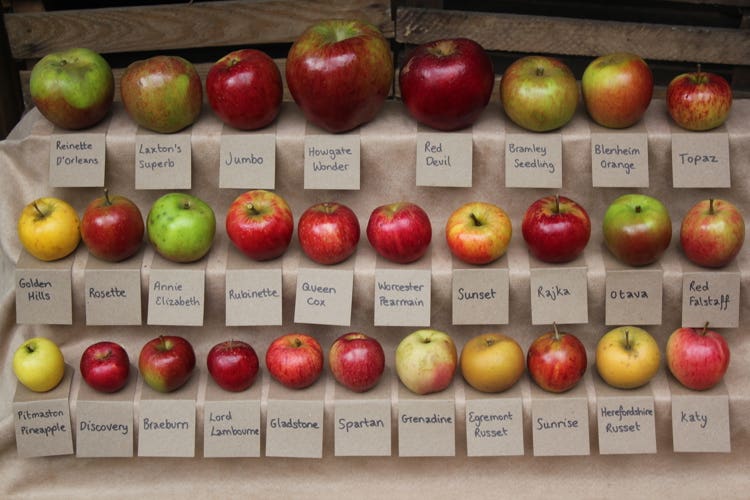Walnuts for breakfast: The natural brain boost you need
Eating walnuts for breakfast may improve memory and reaction time throughout the day, according to new research from the University of Reading.

A study finds that eating walnuts at breakfast may boost memory and reaction times throughout the day. (CREDIT: CC BY-SA 4.0)
Eating walnuts at breakfast may sharpen thinking skills throughout the day. A new study from the University of Reading suggests that consuming a handful of walnuts in the morning could lead to quicker reaction times and better memory performance later in the day. The research builds on a growing body of evidence that links nut consumption, particularly walnuts, with improved cognitive function.
Walnuts and Brain Health
Your diet plays a critical role in brain function. Studies show that eating nutrient-rich foods, like walnuts, can support memory and cognitive flexibility. Large-scale epidemiological research supports this link.
The Doetinchem Cohort Study found that higher nut consumption predicted better memory, processing speed, and overall cognitive performance in middle-aged adults.
Similarly, the Nurses’ Health Study revealed that older women who ate at least five servings of nuts per week performed better on cognitive tests than those who ate none. Walnuts, in particular, stood out for their positive effects.
Animal studies further reinforce these findings. Research in rodents suggests that walnut supplementation enhances learning and memory. For instance, rats fed walnuts performed better in tasks assessing spatial memory, such as the Morris Water Maze and Radial Arm Maze. These improvements suggest walnuts may support brain function at a biological level.
Despite promising early findings, human clinical trials on walnuts and cognition remain limited. Some studies indicate that regular walnut consumption benefits learning, memory, and overall cognition in older adults, while others suggest improvements in academic performance and stress resilience in younger adults. However, not all trials confirm these effects, suggesting that age, dosage, or specific cognitive domains may influence the results.
How Walnuts May Boost Cognitive Function
Walnuts contain several nutrients that contribute to brain health. They are rich in omega-3 fatty acids, specifically alpha-linolenic acid (ALA), as well as proteins, peptides, and flavonoids. Research shows that each of these compounds can positively affect cognition.
Related Stories
Omega-3 fatty acids play a crucial role in brain structure and function. They help maintain cell membranes and support neurotransmitter activity. Studies suggest that diets rich in omega-3s can improve memory, attention, and mood across different age groups.
Walnut proteins and peptides may also contribute to cognitive benefits by regulating the absorption of fats, which in turn enhances the availability of fat-soluble vitamins and antioxidants. Meanwhile, flavonoids, a type of polyphenol, have been shown to protect neurons, improve blood flow to the brain, and enhance memory.
Beyond these direct effects, walnuts may support brain function through broader physiological benefits. Regular walnut consumption has been linked to increased levels of brain-derived neurotrophic factor (BDNF), a protein that supports the growth and survival of brain cells.
Other research highlights walnuts' potential to lower LDL cholesterol, improve gut microbiota diversity, and enhance vascular function—factors that all contribute to better brain health.
The Latest Study: Walnuts at Breakfast
The new study from the University of Reading offers fresh insights into the short-term cognitive benefits of walnuts. Unlike previous research that focused on long-term walnut consumption, this study examined the immediate effects of eating walnuts at breakfast.
Researchers recruited 32 healthy young adults aged 18 to 30. Participants consumed two different breakfasts on separate occasions: one that included 50 grams of walnuts mixed with muesli and yogurt and another that provided the same number of calories but without nuts. After each meal, participants completed cognitive tests over the next six hours while researchers monitored their brain activity and blood biomarkers.
The results were striking. Young adults who ate the walnut-rich breakfast had faster reaction times throughout the day. They also showed improved memory performance later in the day compared to when they ate the non-walnut breakfast.
Brain activity recordings revealed changes that suggested walnuts helped the brain work more efficiently during mentally demanding tasks. Additionally, blood tests indicated beneficial changes in glucose and fatty acid levels—both of which influence cognitive function.
Professor Claire Williams, who led the research, emphasized the potential significance of these findings: “This study helps strengthen the case for walnuts as brain food. A handful of walnuts with breakfast could give young adults a mental edge when they need to perform at the top of their game. It's particularly exciting that such a simple dietary addition could make a measurable difference to cognitive performance."
More Research Needed
While the study adds valuable insight, scientists acknowledge that more research is necessary. The University of Reading team suggests that future studies should explore the precise mechanisms by which walnuts influence cognitive function.
Are the benefits due to specific nutrients, or do multiple compounds work together? How do these effects differ across different age groups? And could walnuts improve cognition in people with existing cognitive impairments?
Previous research on other flavonoid-rich foods, such as blueberries, has demonstrated both immediate and long-term cognitive benefits. These effects are believed to stem from a combination of vascular, glucose-regulating, and neurochemical mechanisms. Walnuts may work through similar pathways, but more studies are needed to confirm this.
The recent systematic review on walnuts and cognition also highlights the need for more rigorous randomized controlled trials. Future research should examine not only cognitive and mood effects but also physiological and neurological markers to pinpoint how walnuts impact brain function.
The University of Reading study was conducted at the Centre for Integrative Neuroscience and Neurodynamics and funded by the California Walnut Commission. However, the funders had no role in designing the experiment or interpreting the results.
For now, the evidence suggests that adding walnuts to your morning meal could offer an easy way to support brain health. Whether you're facing a busy workday or preparing for an important exam, a handful of walnuts might provide the mental boost you need.
Note: Materials provided above by The Brighter Side of News. Content may be edited for style and length.
Like these kind of feel good stories? Get The Brighter Side of News' newsletter.
Rebecca Shavit
Science & Technology Journalist | Innovation Storyteller
Based in Los Angeles, Rebecca Shavit is a dedicated science and technology journalist who writes for The Brighter Side of News, an online publication committed to highlighting positive and transformative stories from around the world. With a passion for uncovering groundbreaking discoveries and innovations, she brings to light the scientific advancements shaping a better future. Her reporting spans a wide range of topics, from cutting-edge medical breakthroughs and artificial intelligence to green technology and space exploration. With a keen ability to translate complex concepts into engaging and accessible stories, she makes science and innovation relatable to a broad audience.



